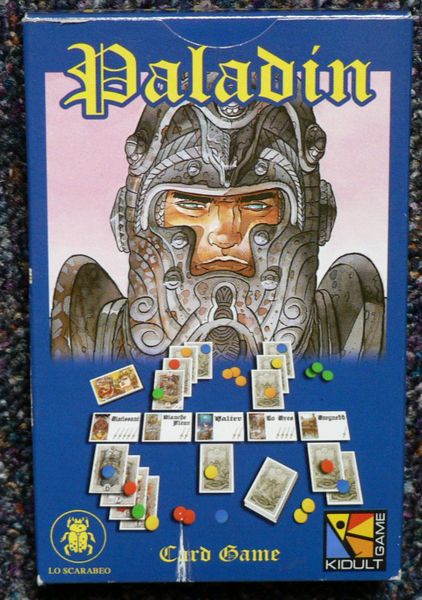Paladin (2004) Board Game
Paladin is a card game designed by Joseph Viglioglia and released in in 2004. It is a strategic game that requires players to manage their hands effectively in order to outwit their opponents and emerge victorious. With a runtime of 20 minutes and a recommended age of 10 and up, Paladin is suitable for both casual gamers and more experienced players looking for a quick and engaging gaming experience.
Game Components of Paladin
How To Setup Paladin
To set up Paladin, the card dealer selects one of the players to be the start player. This start player places a Paladin card face down near one of the open quest cards and marks it with a token, designating it as the leading Paladin. Each subsequent player then places a Paladin card near a free quest card until all quests have a leading Paladin assigned.
Gameplay Mechanics and Game Objective
Player Experience
Playing Paladin involves strategic planning and a bit of luck. Players need to carefully choose which Paladin cards to play to maximize their chances of winning quests. The game encourages players to think ahead and anticipate the moves of their opponents. The varnished paper cards add a synthetic but visually appealing touch to the game.
Pros
Cons
Personal Thoughts on Paladin
Paladin is a great choice for those who enjoy card games with a strategic twist. It’s ideal for players who appreciate a game that is easy to learn but challenging to master. While it may not be the most complex game, it offers a fun and engaging experience for players looking for a light to medium-weight strategy game. However, it might not be as appealing to players who prefer games with more intricate mechanics or those who are put off by the reliance on luck.
We are supported by our audience. When you purchase through links on our site, we may earn an affiliate commission, at no extra cost for you. Learn more.

